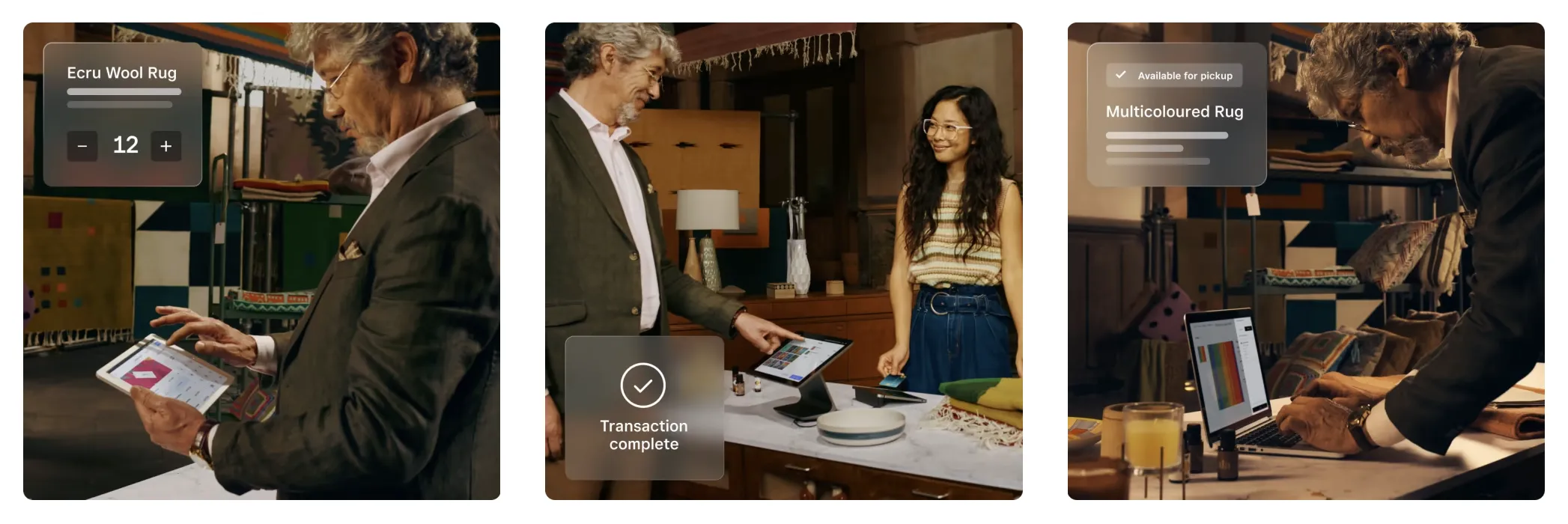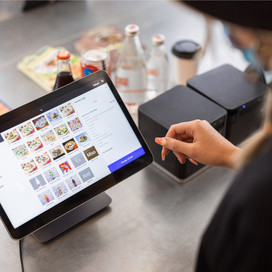Table of contents
Happy 2024! Have you made your business’s new year’s resolutions yet? Before you do, or if you’re still shaping your goals for the next 12 months, here are three of the key business trends you need to be aware of this coming year.
1. Rapid tech acceleration
The pandemic’s silver lining has been the way it accelerated technological adaptation across businesses, with benefits for owners and staff. Flexible, remote working arrangements have led to happier, more productive teams. Video conferencing has saved time that used to be wasted travelling to meetings.
Similarly, in retail we’re seeing a massive, transformational shift to omnichannel marketing. Forced to shop online during lockdowns, consumers discovered they liked the convenience, variety and competitive pricing. They’ve now returned to brick-and-mortar but only as part of a permanent new mix of online, in-store and on-socials shopping. The customer might begin with any one of these touch points and criss-cross back and forth between them before making a final purchase. Retailers need to react to this, and meeting your customers where they shop is the new standard.
Among the 500 business decision makers we spoke to for our Future of Retail report, online sales accounted for an average of 52% of their annual sales revenue. Supporting that statistic, 54% of retailers say social media channels account for most of their revenue. Square makes it easy to create shoppable posts directly in Instagram or Facebook.
Square for Retail’s Product Marketing Manager Jarrad Brownfield says “shopping online and via social channels is projected to increase and will play an important role in retailers’ channel mix to grow their businesses”.
“Customers are demanding interactive ways to learn about products, convenient ways to pay, ship, exchange and be rewarded for their purchases. This is where automation tools can help,” he explains.
Automation is a sub-trend of the turn to technology. Faced with staff shortages and rising costs, businesses rightly see these tools as powerful ways to reduce the time spent on low-impact but necessary tasks like stock management while freeing up hours for high-impact areas like customer relationships.
Given the recent spate of high-profile hacking cases in Australia, another tech trend we recommend you get on board with is the push towards better online security. It doesn’t need to be difficult. Enabling two-factor authentication on Square is simple and will help protect you and your customers. Importantly, don’t neglect security just because you may not be a nation-wide business. Infact, one study found that employees at small businesses are three times more likely to be targeted than employees at large enterprises.
2. Shift to sustainability
A new generation of more conscious shoppers searching for sustainable products will continue to remake the landscape. Businesses don’t need to be afraid here. In fact, there are huge opportunities for those willing to lead with their values and differentiate themselves through the messages they send.
We spoke to 1,000 Australian shoppers for our Future of Retail report and 88% of them said a brand’s values and ethics matter to them. Other studies suggest two-thirds of consumers are “belief-driven buyers”, and the same proportion say they expect brands to stand up for social, cultural, and environmental issues.
These statistics are even more pronounced among Generation Z – a group whose oldest members are only 26 in 2023 and which is still to reach its maximum influence in terms of workforce participation and spending power. Gen Z’s consumer activism also has an outsized influence on its parents’ and even grandparents’ generations.
Influential “futurist” Bernard Marr says these trends mean that, for businesses, the notion of who is a stakeholder is changing.
“Alongside customers, employees, investors, and so on, society itself is now a stakeholder – meaning organisations that act in the best interests of society, by providing responsibly made products, will be better equipped for success in the future,” Marr says.
“Businesses must therefore work to ensure their products are produced ethically, sustainably and, where appropriate, from natural materials. They must also invest in more sustainable business operations.”
The good news is that conscious consumers recognise they need to pay more for ethically made products and services. For businesses, that provides a clear avenue for differentiation and an end to competing on price, which can only ever be a race to the bottom.
Businesses that find an authentic purpose, one that marries sustainability to the brand’s mission, will stand out from the crowd and have a better chance of making an impact in their market.
Take time to ask yourself what matters to you and go from there. Concentrate on meaningful storytelling that communicates the “why” of your brand – and think about ways to reach Generation Z. If you’re not already on TikTok, 2023 might be the year to launch your presence.
3. Immersive retail experiences
We’ve already discussed the importance of omnichannel in retail, but creating an immersive retail experience takes this one step further.
Technology has not only blurred the distinction between online and in-store shopping but also given retailers unprecedented data sets and a better understanding of their customers.
Tip: With Square for Retail Plus you can review your data using reports to see last year’s performance and profit across different products and inform your 2023 strategy.
Leading-edge retailers are taking these insights and applying them to data-informed tactics and technologies. This may look different for everybody but could encompass advanced inventory management, self-serve checkouts, virtual fitting rooms and even augmented reality experiences in-store.
It’s backed up by the feedback from consumers. More than a third of Aussie consumers are interested in trying virtual shopping options if they’re offered by a retailer, and 22% (jumping to 31% among Millennials) are interested in a virtual reality technology that allows them to try on products in a virtual shop.
Australian Retailers Association CEO Paul Zahra sees the trend as one of the positives to emerge from the pandemic.
“As people began to shop more from home, we saw things like augmented reality come to the forefront. People could see what a new couch would look like in their living room, or if a new shade of lipstick would be the right match for them,” he says.
“We’re going to see more in the innovation space when it comes to virtual shopping as retailers look at new technology to make product offerings more compelling.”
Our product marketing manager Jarrad says that Square’s seller community agrees – it’s using immersive digital formats to build brand trust.
“We’ve increasingly seen customers engaging with product demonstration videos, trade events and virtual classes. It’s an interactive and fun way to see products in action, ask questions and build trust in your retail brand,” Jarrad says.
So there you have it: three key trends that are likely to shape the business environment in 2024. We hope you’ll try out least a few of the innovations that we predict will be important this year.
Learn more about Square’s business toolkit and read more stories on The Bottom Line.
![]()












